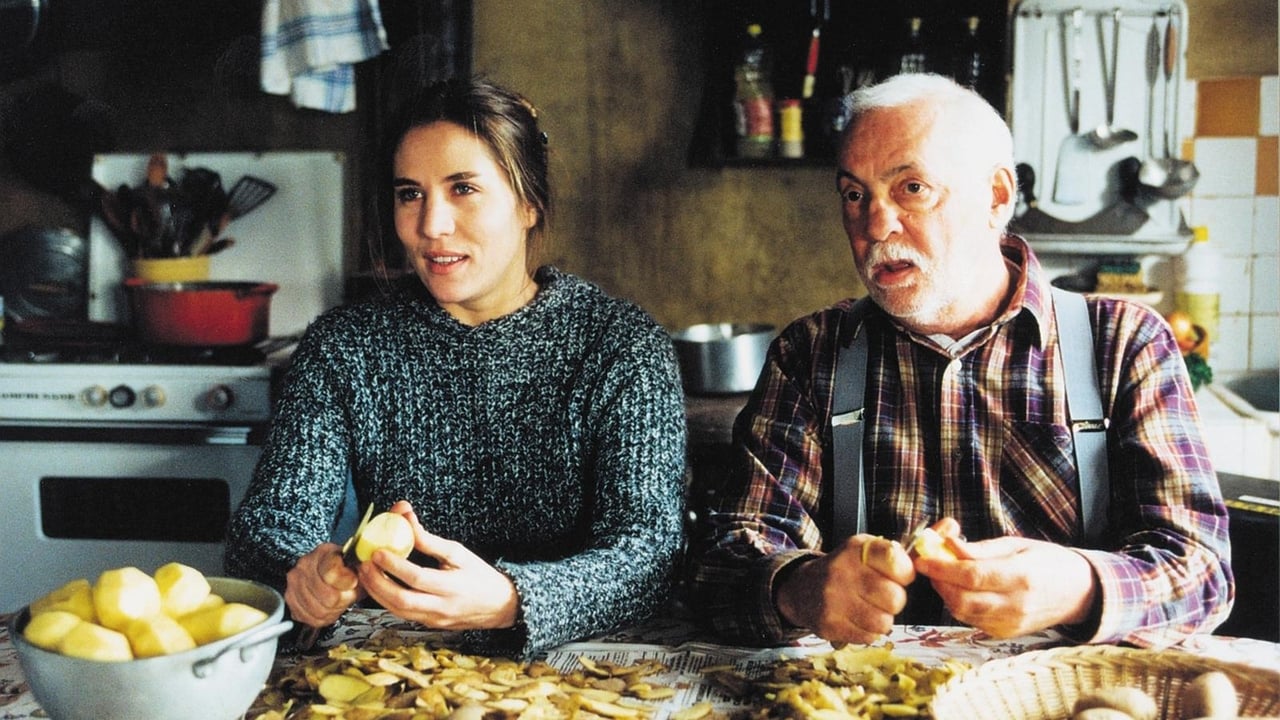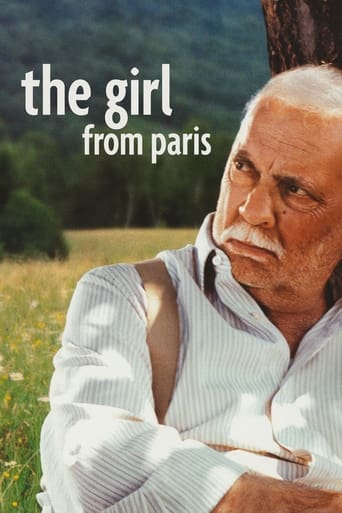

This is not a review, but a warning. The film is well described in most of the reviews here, so I'll not add my own in that regard. Besides, I never got past the slaughter of the pig. Watching that pig struggle and scream in terror, then hang numbly before being shot was it for me.I am a vegetarian. Make of that what you will. Yes, I know animals are slaughtered on a farm. But this is a film, and I draw the line at slaughtering animals for entertainment of humans. We eat animals, use them to make clothing. Hey, animals eat each other. These are facts of life, but killing them for entertainment, no--not even if the animal was to be eaten. The film should have been issued with a warning to this effect.If you feel as I do, don't say I didn't warn you.
... View MoreIt's formulaic, of course, but the trick with formulas is to act as if they're NOT formulaic and play it as if it were the most original story that ever came down the Pike. And that's what we get here, a charming, dazzling and ultimately Moving film that explores as if for the first time age-old concerns. Serrault has been here before in Nelly and Monsieur Arnaud so this is a good time to deal with the six degrees of separation aspect. In 'Nelly' Serrault was the older man and Manu Beart the younger woman; in Manon des Source Manu Beart tended goats and here Mathilde Seigneur does the same thing. So much for trivia. They really put more than the usual five minutes thought into this one because the credits come up over breathtaking aeriel shots of the Vercours and you can see why so many English people are inspired to buy second homes in France or even move there entirely. This is reinforced when in the first sequence we cut to Sandrine (Seigneur) caught up in a traffic jam in Paris and looking thoughtfully at a travel poster of Vercours on a bus in front of her. This is economical storytelling and in the very next scene she is telling her mother of her decision to move to the Vercours - in the Rhone Alps - and become a goat-farmer. The mother can't understand, natch, why a girl born and bred in Paris and a successful computer instructor would want to give it all up to become a sort of recluse about town. So we get the argument out of the way in the first reel. Sandrine is a gifted student, one of the best in Agricultural school and soon she is ready to invest 450,000 Francs in a remote goat farm. The farm belongs to old Adrien (Michel Serrault) and he comes with it, at least til he can move into his new flat in Grenoble some 18 months away. We are now ready for the classic battle of Old versus New, Young versus Old, initial antagonism giving way to mutual affection. Like I said, we've seen it all before. But what we HAVEN'T seen before is two Class Acts like Serrault and Seigneur and what they serve up is pure DELIGHT. We are spared nothing, this isn't a Travelogue because after an idyllic Summer comes the Winter of Discontent, so bad that Seigneur seriously considers throwing in the towel. Essentially a two-hander that stands or falls by the the quality of the two pricipals it is also fleshed out with really strong support in the shape of Adrien's neighbor and contemporary, Sandrine's colleague from Paris and sometime lover, and her mother. This is the kind of movie that Hollywood has completely forgotten how to make and which the accountants who run the place wouldn't sanction anyway. Thank God the French and other European countries can still turn them out like this. 10/10
... View MoreGreetings again from the darkness. Wonderful, subtle French film that displays the nuances of quiet desperation of the young and fear of loneliness and death of the elderly. Make no mistake, the venerable Michel Serrault MAKES this movie! He is downright remarkable as Adrien, the long time farmer, who sells is farm to the young city girl played well by Mathilde Seigner. Many excellent scenes including awkward moments for all. The ridiculous comments about cruelty to animals during the filming is not worthy of mention. This is a fact of life on a farm and obviously the cow scenes were real life - not created for the film. The pig scene, may be painful to watch, but effectively makes the point of life and death on a farm - just like the goat birth scene. As far as the rabbit, give me a break, we see a live bunny and then one being prepared for dinner. This can happen in any restaurant on a daily basis. Yes the hang glider was a bit too much, too often, but I loved the Volvo, the Weimeramer and the "dumb" goat. Very personal film with much insight into human nature at all ages.
... View MoreA stressed Parisienne decides to take up sheep-rearing in the Massif du Vercors, situated not far from Grenoble, France. She buys up a farmstead and the owner of the latter remains on site while waiting for transfer to a town. The film is basically about the tense relationship between the young lady played by Mathilde Seigner and the retired farmer played by Michel Serrault who generally tries to make life hard for her but eventually is taken with affection by the same young lady. I am no fan of Michel Serrault, but his performance in this film is excellent as is that of Mathilde Seigner. Although the script is limited in scope, the dialogues and development of the characters may be followed with pleasure by the spectator. The décors are magnificent as the film was made in natural surroundings so we see the mountains change in form and colour according to the passing seasons. I would strongly recommend the film to people of all countries as it has a very universal message. It may be noted that the film was made by someone who has a very rural background. It is now available on DVD in France and the editor has taken the unusual (but welcome) step of including English Subtitles on the DVD. The title is a play on words because the expression `Une hirondelle ne fait pas le printemps' = `One Swallow doesn't make a Summer'. So it's as if you were saying ` One Swallow has Made the Summer' ! This film deserves to be successful outside France, unlike many of the other mediocre productions of that country today !
... View More